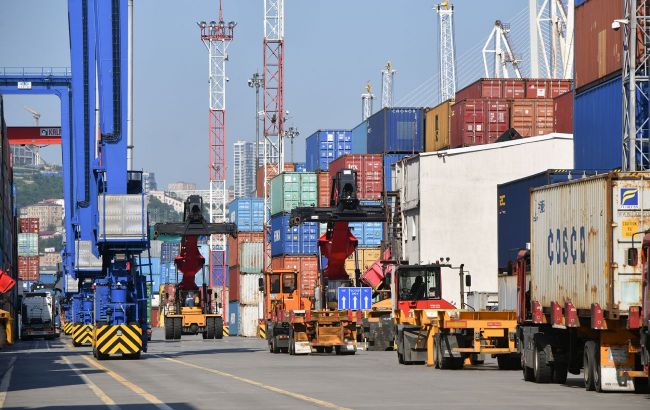Russia dodges sanctions again: Reuters uncovers new scheme
 Photo: Journalists uncover Russia's barter deals with China and beyond (Getty Images)
Photo: Journalists uncover Russia's barter deals with China and beyond (Getty Images)
Russia's foreign trade is increasingly shifting toward barter with other countries. The aggressor is turning to this method as a way to bypass Western sanctions, according to Reuters.
Barter
Under barter arrangements, Russian companies have been exchanging wheat for Chinese cars and flax seeds for construction materials.
In one transaction uncovered by Reuters from two trade sources, Chinese cars were swapped for Russian grain. According to one of the sources, Chinese partners under the deal specifically asked their Russian counterparts to settle in grain.
The Chinese partners purchased the cars in China with yuan. The Russian partner bought the grain with rubles. Then the wheat was exchanged for the cars.
In two other deals, flax seeds were traded for goods including household appliances and building materials from China, according to customs declarations.
In other agreements, metals were supplied to China in exchange for machinery, Chinese services were bartered for raw materials, and a Russian importer bought aluminum to settle with a Chinese company. One deal was struck with Pakistan.
How Russia’s economy responds to sanctions
According to the report, even as Moscow seeks closer ties with China and India, the return of barter highlights how the war in Ukraine has distorted trade relations for the world's largest natural resource exporter.
Reuters notes that the US, Europe, and their allies have imposed more than 25,000 sanctions on Russia over the war in Ukraine and the occupation of Crimea.
Putin claims the Russian economy has outperformed expectations, pointing to growth over the past two years compared to G7 countries.
But signs of strain are mounting: according to Russia's Central Bank, the economy is now technically in recession and suffering from high inflation.
Barter deals uncovered in Russia
Last month, Reuters reported that China's Hainan Longpan Oilfield Technology Co. sought to trade steel and aluminum alloys for ship engines. The company did not respond to requests for comment.
For this investigation, Reuters identified eight barter transactions involving physical goods, based on trade sources, public customs filings, and company statements.
"The growth of barter is a symptom of de-dollarisation, sanctions pressure and liquidity problems among partners," Reuters quoted Maxim Spassky, Secretary of the General Council of the Russian-Asian Union of Industrialists and Entrepreneurs.
Spassky noted that barter volumes are likely to keep growing.
Three analysts suggested that one indicator of barter's scale is the widening gap - $7 billion in the first half of this year - between central bank trade statistics and customs data.
What Russia says about barter
In response to Reuters' request, Russia's customs service confirmed barter was being carried out with various countries "for a wide range of goods." However, it stressed that barter deals made up only a small share of overall foreign trade contracts.
The government and Central Bank declined to comment on barter, stating only that "there is no data available."
Meanwhile, the EU has already prepared its 19th sanctions package against Russia. The US and EU are coordinating their stance on sanctions targeting Kremlin oil and gas revenues.
Just days ago, US President Donald Trump announced a powerful new sanctions strike against Russia, which could hit its oil sector and banks.
At the same time, Russia declared a state of so-called "technical stagnation" in the economy - effectively admitting it has come to a standstill.

